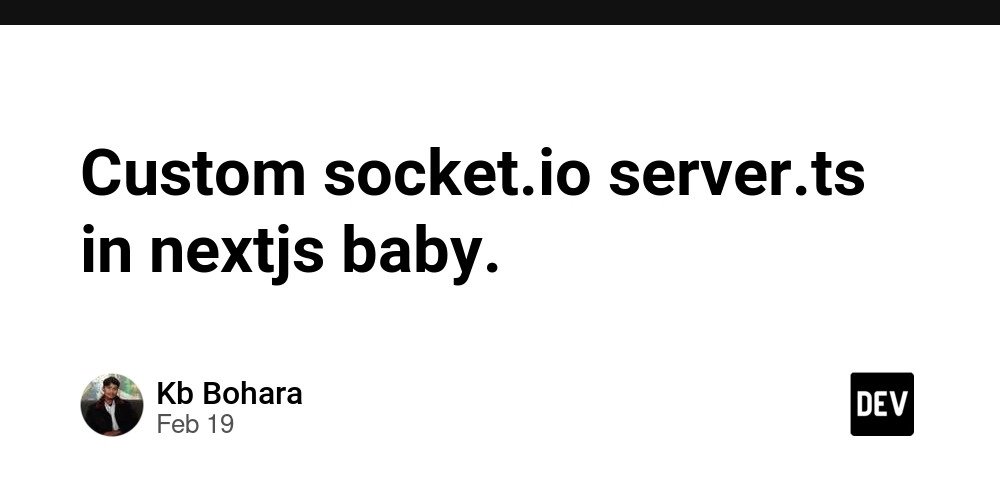Deploying a FastAPI Application on AWS EC2 with CI/CD Using GitHub Actions and Nginx
Introduction In this blog post, we will walk through the process of deploying a FastAPI application on an AWS EC2 instance with Nginx as a reverse proxy, while leveraging GitHub Actions for Continuous Integration and Continuous Deployment (CI/CD). This will ensure that every change pushed to the main branch is automatically deployed to the server. By the end of this tutorial, you will have a fully functional, continuously deployed FastAPI application running on AWS. Project Overview We will be working with a FastAPI Book API and following these key steps: Implement the missing GET /api/v1/books/{book_id} endpoint. Test the application locally. Dockerize the application. Deploy it on an AWS EC2 instance. Set up Nginx as a reverse proxy. Configure GitHub Actions to automate deployment. Step 1: Implement the Missing Endpoint The application already provides endpoints for creating, updating, and deleting books, but we need to add an endpoint to retrieve a book by its ID. Modify api/routes/books.py by adding the missing endpoint: from typing import OrderedDict from typing import Dict from fastapi import APIRouter, status, HTTPException from fastapi.responses import JSONResponse from api.db.schemas import Book, Genre, InMemoryDB router = APIRouter() db = InMemoryDB() db.books = { 1: Book( id=1, title="The Hobbit", author="J.R.R. Tolkien", publication_year=1937, genre=Genre.SCI_FI, ), 2: Book( id=2, title="The Lord of the Rings", author="J.R.R. Tolkien", publication_year=1954, genre=Genre.FANTASY, ), 3: Book( id=3, title="The Return of the King", author="J.R.R. Tolkien", publication_year=1955, genre=Genre.FANTASY, ), } @router.post("/", status_code=status.HTTP_201_CREATED) async def create_book(book: Book): db.add_book(book) return JSONResponse( status_code=status.HTTP_201_CREATED, content=book.model_dump() ) @router.get("/", response_model=OrderedDict[int, Book], status_code=status.HTTP_200_OK) async def get_books() -> OrderedDict[int, Book]: return db.get_books() @router.put("/{book_id}", response_model=Book, status_code=status.HTTP_200_OK) async def update_book(book_id: int, book: Book) -> Book: return JSONResponse( status_code=status.HTTP_200_OK, content=db.update_book(book_id, book).model_dump(), ) @router.delete("/{book_id}", status_code=status.HTTP_204_NO_CONTENT) async def delete_book(book_id: int) -> None: db.delete_book(book_id) return JSONResponse(status_code=status.HTTP_204_NO_CONTENT, content=None) # Added the missing api endpoint @router.get("/{book_id}", response_model=Book, status_code=status.HTTP_200_OK) async def get_book(book_id: int): book=db.books.get(book_id) if not book: raise HTTPException(status_code=status.HTTP_404_NOT_FOUND, detail="Book not found") return book This ensures that a book is retrieved by its ID or returns a 404 Not Found error if it doesn't exist. Step 2: Test the Application Locally Before deploying, test the API locally using pytest: pytest To run the FastAPI application locally: uvicorn api.main:app --host 0.0.0.0 --port 8084 --reload Test the new endpoint with: curl -X 'GET' 'http://127.0.0.1:8084/api/v1/books/1' -H 'accept: application/json' Step 3: Dockerizing the Application Create a Dockerfile in the root directory: FROM python:3.9-slim WORKDIR /app COPY requirements.txt . RUN pip install --no-cache-dir -r requirements.txt COPY . . CMD ["uvicorn", "api.main:app", "--host", "0.0.0.0", "--port", "8084"] Build and run the Docker container: docker build -t fastapi-app . docker run -d -p 8084:8084 --name fastapi-container fastapi-app Step 4: Deploy to AWS EC2 1. Launch an EC2 Instance Choose Ubuntu 22.04. Configure security groups to allow SSH (22), HTTP (80), and Custom TCP (8084). 2. SSH into the Instance ssh -i your-key.pem ubuntu@your-ec2-public-ip 3. Install Docker and Git sudo apt update && sudo apt install -y docker.io git 4. Clone the Repository and Run the Application git clone https://github.com/yourusername/fastapi-book-project.git cd fastapi-book-project docker build -t fastapi-app . docker run -d -p 8084:8084 --name fastapi-container fastapi-app Test the application from your browser: http://your-ec2-public-ip:8084/api/v1/books/1 Step 5: Set Up Nginx as a Reverse Proxy Install Nginx: sudo apt install -y nginx Modify the Nginx configuration file /etc/nginx/sites-available/default: server { listen 80; server_name your-ec2-public-ip; location / { proxy_pass http://127.0.0.1:8084/; proxy_set_header Host $host; proxy_set_header X-Real-IP $remote_addr; proxy_

Introduction
In this blog post, we will walk through the process of deploying a FastAPI application on an AWS EC2 instance with Nginx as a reverse proxy, while leveraging GitHub Actions for Continuous Integration and Continuous Deployment (CI/CD). This will ensure that every change pushed to the main branch is automatically deployed to the server.
By the end of this tutorial, you will have a fully functional, continuously deployed FastAPI application running on AWS.
Project Overview
We will be working with a FastAPI Book API and following these key steps:
- Implement the missing
GET /api/v1/books/{book_id}endpoint. - Test the application locally.
- Dockerize the application.
- Deploy it on an AWS EC2 instance.
- Set up Nginx as a reverse proxy.
- Configure GitHub Actions to automate deployment.
Step 1: Implement the Missing Endpoint
The application already provides endpoints for creating, updating, and deleting books, but we need to add an endpoint to retrieve a book by its ID.
Modify api/routes/books.py by adding the missing endpoint:
from typing import OrderedDict
from typing import Dict
from fastapi import APIRouter, status, HTTPException
from fastapi.responses import JSONResponse
from api.db.schemas import Book, Genre, InMemoryDB
router = APIRouter()
db = InMemoryDB()
db.books = {
1: Book(
id=1,
title="The Hobbit",
author="J.R.R. Tolkien",
publication_year=1937,
genre=Genre.SCI_FI,
),
2: Book(
id=2,
title="The Lord of the Rings",
author="J.R.R. Tolkien",
publication_year=1954,
genre=Genre.FANTASY,
),
3: Book(
id=3,
title="The Return of the King",
author="J.R.R. Tolkien",
publication_year=1955,
genre=Genre.FANTASY,
),
}
@router.post("/", status_code=status.HTTP_201_CREATED)
async def create_book(book: Book):
db.add_book(book)
return JSONResponse(
status_code=status.HTTP_201_CREATED, content=book.model_dump()
)
@router.get("/", response_model=OrderedDict[int, Book], status_code=status.HTTP_200_OK)
async def get_books() -> OrderedDict[int, Book]:
return db.get_books()
@router.put("/{book_id}", response_model=Book, status_code=status.HTTP_200_OK)
async def update_book(book_id: int, book: Book) -> Book:
return JSONResponse(
status_code=status.HTTP_200_OK,
content=db.update_book(book_id, book).model_dump(),
)
@router.delete("/{book_id}", status_code=status.HTTP_204_NO_CONTENT)
async def delete_book(book_id: int) -> None:
db.delete_book(book_id)
return JSONResponse(status_code=status.HTTP_204_NO_CONTENT, content=None)
# Added the missing api endpoint
@router.get("/{book_id}", response_model=Book, status_code=status.HTTP_200_OK)
async def get_book(book_id: int):
book=db.books.get(book_id)
if not book:
raise HTTPException(status_code=status.HTTP_404_NOT_FOUND, detail="Book not found")
return book
This ensures that a book is retrieved by its ID or returns a 404 Not Found error if it doesn't exist.
Step 2: Test the Application Locally
Before deploying, test the API locally using pytest:
pytest
To run the FastAPI application locally:
uvicorn api.main:app --host 0.0.0.0 --port 8084 --reload
Test the new endpoint with:
curl -X 'GET' 'http://127.0.0.1:8084/api/v1/books/1' -H 'accept: application/json'
Step 3: Dockerizing the Application
Create a Dockerfile in the root directory:
FROM python:3.9-slim
WORKDIR /app
COPY requirements.txt .
RUN pip install --no-cache-dir -r requirements.txt
COPY . .
CMD ["uvicorn", "api.main:app", "--host", "0.0.0.0", "--port", "8084"]
Build and run the Docker container:
docker build -t fastapi-app .
docker run -d -p 8084:8084 --name fastapi-container fastapi-app
Step 4: Deploy to AWS EC2
1. Launch an EC2 Instance
- Choose Ubuntu 22.04.
- Configure security groups to allow SSH (22), HTTP (80), and Custom TCP (8084).
2. SSH into the Instance
ssh -i your-key.pem ubuntu@your-ec2-public-ip
3. Install Docker and Git
sudo apt update && sudo apt install -y docker.io git
4. Clone the Repository and Run the Application
git clone https://github.com/yourusername/fastapi-book-project.git
cd fastapi-book-project
docker build -t fastapi-app .
docker run -d -p 8084:8084 --name fastapi-container fastapi-app
Test the application from your browser: http://your-ec2-public-ip:8084/api/v1/books/1
Step 5: Set Up Nginx as a Reverse Proxy
Install Nginx:
sudo apt install -y nginx
Modify the Nginx configuration file /etc/nginx/sites-available/default:
server {
listen 80;
server_name your-ec2-public-ip;
location / {
proxy_pass http://127.0.0.1:8084/;
proxy_set_header Host $host;
proxy_set_header X-Real-IP $remote_addr;
proxy_set_header X-Forwarded-For $proxy_add_x_forwarded_for;
}
}
Restart Nginx:
sudo systemctl restart nginx
Now, your FastAPI application is accessible at http://your-ec2-public-ip/.
Step 6: Automate Deployment with GitHub Actions
Create .github/workflows/deploy.yml:
name: Deploy FastAPI to EC2
on:
push:
branches: [main]
jobs:
deploy:
runs-on: ubuntu-latest
steps:
- name: Checkout repository
uses: actions/checkout@v2
- name: Deploy to EC2
uses: appleboy/ssh-action@v0.1.6
with:
host: ${{ secrets.EC2_HOST }}
username: ubuntu
key: ${{ secrets.EC2_SSH_KEY }}
script: |
cd ~/fastapi-book-project
git pull origin main
docker build -t fastapi-app .
docker stop fastapi-container || true
docker rm fastapi-container || true
docker run -d -p 8084:8084 --name fastapi-container fastapi-app
sudo systemctl restart nginx
Set Up GitHub Secrets
In your GitHub repository:
- Navigate to Settings > Secrets > Actions.
- Add EC2_HOST (EC2 public IP) and EC2_SSH_KEY (your private key).
Trigger Deployment
Run:
git add .
git commit -m "Test auto-deploy"
git push origin main
On a successful push to main, GitHub Actions will automatically deploy the app!
Challenges and Resolutions
1. Nginx Not Proxying Requests
Check Nginx logs:
sudo journalctl -u nginx --no-pager | tail -n 20
2. Docker Container Fails to Start
Verify logs:
docker logs fastapi-container
3. GitHub Actions SSH Key Issues
Ensure EC2_SSH_KEY secret is correctly set in GitHub.
Further Enhancements
- Use AWS ECS instead of EC2 for better scalability.
- Set up HTTPS with Let's Encrypt.
- Store secrets securely using AWS Secrets Manager.
With this setup, you have a robust CI/CD pipeline that ensures seamless deployment of your FastAPI application.










































































































































































![[The AI Show Episode 142]: ChatGPT’s New Image Generator, Studio Ghibli Craze and Backlash, Gemini 2.5, OpenAI Academy, 4o Updates, Vibe Marketing & xAI Acquires X](https://www.marketingaiinstitute.com/hubfs/ep%20142%20cover.png)



























































































































![[FREE EBOOKS] The Kubernetes Bible, The Ultimate Linux Shell Scripting Guide & Four More Best Selling Titles](https://www.javacodegeeks.com/wp-content/uploads/2012/12/jcg-logo.jpg)



![From drop-out to software architect with Jason Lengstorf [Podcast #167]](https://cdn.hashnode.com/res/hashnode/image/upload/v1743796461357/f3d19cd7-e6f5-4d7c-8bfc-eb974bc8da68.png?#)






































































































.png?#)




.jpg?#)































_Christophe_Coat_Alamy.jpg?#)








































































































![Rapidus in Talks With Apple as It Accelerates Toward 2nm Chip Production [Report]](https://www.iclarified.com/images/news/96937/96937/96937-640.jpg)









































































































































